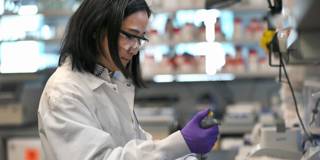Scientists and their advocates must do more than simply improve how they explain scientific issues to the public. A broader set of stakeholders must be given a voice in debates about the social, cultural, political, and ethical implications of new discoveries.
NEW YORK – From the growing presence of artificial intelligence in our daily lives to novel medical therapies, progress in science and technology affects us all – mostly in positive ways. But the pace of change brought by science can lead to bewilderment and fear, especially among those who have little familiarity with the culture of scientific research.

NEW YORK – From the growing presence of artificial intelligence in our daily lives to novel medical therapies, progress in science and technology affects us all – mostly in positive ways. But the pace of change brought by science can lead to bewilderment and fear, especially among those who have little familiarity with the culture of scientific research.